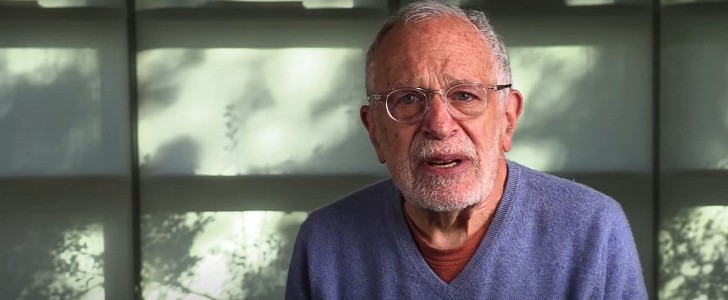It’s not a nightmare, unfortunately. It’s just reality. Inflation and output struggles are all we hear about nowadays. When it comes to filling up our cars again, we can see gas prices continue to climb, creeping their way onto higher highs. There’s a very good reason for that, and, surprisingly, it is not just the fact that money is losing purchasing power. Here’s Robert Reich’s take.
As former Secretary of Labor and currently a professor at the University of California, Berkeley, Robert Reich is sharing his view on why the U.S. is facing such an expected raise for the cost of living. Fossil fuels may be bad for the environment, but the entire country can’t run on electricity alone now. We need gas, diesel, biofuels, kerosene, and other similar sources of energy to keep all the engines running. It’s not the reality everyone wants, but it is nevertheless the truth.
So, besides inflation and Saudi Arabia's refusal to increase output, why do we pay so much for gas now? Are companies failing the citizens that utilize their services, or are there unsolvable problems when it comes to energy that nobody's telling us about? Is it all a conspiracy to force us all to shift to EVs?
Robert Reich says “no” to all these questions that might’ve popped into your mind too at some point. He thinks the U.S. forgot how to stop its corporate core from becoming too greedy. The professor says, “Big Oil corporations are using inflation as cover to push gas prices even higher.”
He thinks “corporate concentration” is what causes these massive spikes and keeps them like this, even though each day more small and medium businesses suffer from dealing with the rising cost of keeping their doors open.
While inflation is being blamed publicly, Reich underlines that corporate greed is the key fact that keeps prices at undesirable levels. And keep in mind this is happening while the U.S. is still missing over three million jobs since 2020.
His example is pretty simple. Normally, any kind of company would want to have as many customers as possible for its products or services, and it would always keep an eye on the competition to find itself a step ahead of other entities that might want its market share. The more, the merrier, right? In today's America, that'd be the wrong view, according to the professor.
The former Secretary of Labor says the American economy is in the hands of “a very few corporate giants with the power to raise prices.” Because these companies turn into decentralized monopolies, they can set whatever values they want for their products or services that other small businesses or normal working people need. Gas is one of those, and its price is rapidly reflected into anything - from bread to medications.
In the end, it’s the lack of real competition in the private sector that’s making the most of us struggle, not inflation. And this might very well be reflected soon enough after the Federal Reserve will start seriously tapering.
If you do not agree with Robert Reich’s view, let us know in the comments. We’re reading them all!
So, besides inflation and Saudi Arabia's refusal to increase output, why do we pay so much for gas now? Are companies failing the citizens that utilize their services, or are there unsolvable problems when it comes to energy that nobody's telling us about? Is it all a conspiracy to force us all to shift to EVs?
Robert Reich says “no” to all these questions that might’ve popped into your mind too at some point. He thinks the U.S. forgot how to stop its corporate core from becoming too greedy. The professor says, “Big Oil corporations are using inflation as cover to push gas prices even higher.”
He thinks “corporate concentration” is what causes these massive spikes and keeps them like this, even though each day more small and medium businesses suffer from dealing with the rising cost of keeping their doors open.
While inflation is being blamed publicly, Reich underlines that corporate greed is the key fact that keeps prices at undesirable levels. And keep in mind this is happening while the U.S. is still missing over three million jobs since 2020.
His example is pretty simple. Normally, any kind of company would want to have as many customers as possible for its products or services, and it would always keep an eye on the competition to find itself a step ahead of other entities that might want its market share. The more, the merrier, right? In today's America, that'd be the wrong view, according to the professor.
The former Secretary of Labor says the American economy is in the hands of “a very few corporate giants with the power to raise prices.” Because these companies turn into decentralized monopolies, they can set whatever values they want for their products or services that other small businesses or normal working people need. Gas is one of those, and its price is rapidly reflected into anything - from bread to medications.
In the end, it’s the lack of real competition in the private sector that’s making the most of us struggle, not inflation. And this might very well be reflected soon enough after the Federal Reserve will start seriously tapering.
If you do not agree with Robert Reich’s view, let us know in the comments. We’re reading them all!
Psst... Big Oil corporations are using inflation as cover to push gas prices even higher and reap record-setting profits. Know the truth. pic.twitter.com/QnWHKNoWOH
— Robert Reich (@RBReich) March 24, 2022






